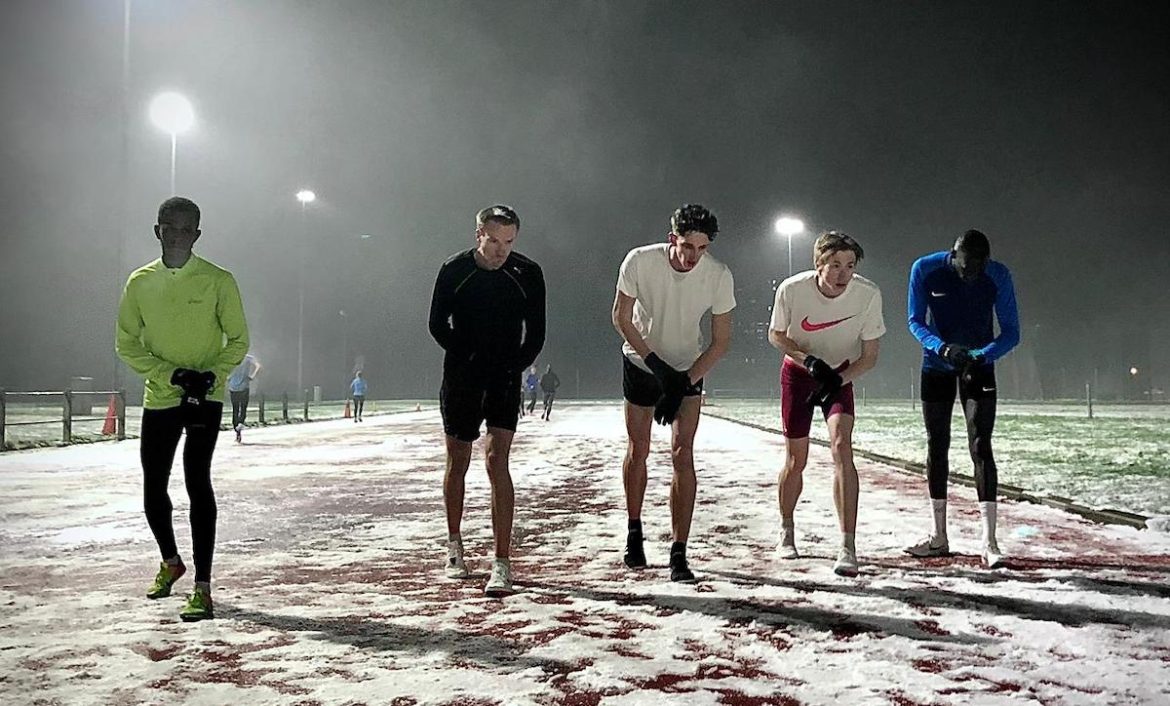Lloyd Emeka shares insights on sports psychology and explores the role of resilience, highlighting how vulnerability can be a positive experience.
“I believe a true champion is not defined by their victories, but by how they recover when they fall.”
The above statement by Serena Williams reflects the significance of overcoming challenges within the realm of sports.
In our daily lives, we face countless obstacles and difficulties, ranging from everyday annoyances to life-altering events, which have been further amplified by the impact of Covid-19. All of these factors have contributed to an ongoing emphasis on resilience as an important human trait and skill for navigating life’s challenges.
While resilience is frequently discussed in society, it is important to understand its definition. The word resilience originates from the Latin verb ‘resilire’ (to leap back) and refers to the ability to withstand or recover quickly from challenging situations.
Overcoming Obstacles in Running
In the context of endurance running, resilience holds positive connotations, considering that endurance involves enduring something painful or challenging for an extended period of time.
Resilience is believed to stem from various personality traits, such as optimism, resourcefulness, and adaptability, enabling individuals to adapt to the circumstances they encounter1,2. This can ultimately lead to personal growth3.
While resilience is commonly associated with overcoming adversity, it can also be applied in positive situations, such as maintaining a position within a leading group during a race.
The positive outcomes of resilience are widely discussed in sports and other areas of life, but is it always advantageous to be resilient?

It’s important to plan for all eventualities in an ultra.
Resilience is a Dynamic Quality
Firstly, it is crucial to recognize that resilience is not static and can vary at different stages of our lives, influenced by the culture and social environments in which we operate and interact.
In situations where individuals experience pain, suffering, ill-health, or other challenges, a societal emphasis on resilience can lead to a culture of dismissing or devaluing any voice that challenges this narrative. This can perpetuate existing issues and challenges faced by individuals.
The benefits of resilience are undeniable, and it plays a significant role in endurance running. However, it is important to create space for alternative narratives to coexist and consider what that might look like.
The experience of adverse circumstances does not always result in the ability to bounce back quickly, and it can be difficult to freely express negative emotions in social environments where resilience is the prevailing narrative. Given that we cannot control every situation we encounter in life, it is understandable that feelings of fear of failure or uncertainty will also arise.
Vulnerability refers to the exposure to harm or challenges to one’s integrity4 and involves having the courage to show up and be seen despite having no control over the outcome5.

Photo: Virgin Money London Marathon
Being Vulnerable Can Have Positive Outcomes
Although vulnerability is a universal human experience6, it is often perceived as a weakness in sports cultures7. Vulnerability can arise from social interactions and is a dynamic experience, meaning individuals may feel vulnerable in certain contexts.
While not always the case, feeling vulnerable can lead to positive experiences that drive personal growth and open up new opportunities8. All experiences of vulnerability deserve equal attention and support, regardless of whether they result in personal growth or not.
Therefore, it is important to create psychologically safe environments where individuals feel comfortable expressing their vulnerability without judgment. The sporting culture and available social support play a crucial role in this regard.
What Can We Do?
For instance, when an athlete struggles to complete a challenging training session or underperforms in a race, a coach can provide support and encourage open expression of vulnerability through their communication style and emotional support.
Running club members can also reach out to athletes when they are feeling vulnerable, offering support through active listening and empathy. In some cases, shared experiences of vulnerability can emerge when runners have faced similar situations in the past.
Additionally, athletes can cultivate self-compassion, which involves being kind and understanding toward oneself during moments of pain or failure, rather than engaging in self-criticism9.
Engaging in mindful self-reflection allows individuals to explore their experiences, thoughts, feelings, and actions with curiosity and openness, leading to a deeper understanding of vulnerability.
When considering ways to prevent or overcome difficult situations, it is essential to avoid solely relying on resilience as the solution and refrain from stigmatizing individuals for feeling vulnerable.
“Vulnerability sounds like truth and feels like courage. ‘Truth and courage are not always comfortable, but they are never weakness.”
References:
- Development of a new resilience scale, Connor & Davidson (2003)
- The role of ego-control and ego-resiliency in the organization of behavior, Block & Block (1980)
- Teaching the Science of Human Flourishing, Unlocking Connection, Positivity, and Resilience for the Greater Good, Ekman & Simon-Thomas (2021)
- New perspectives on vulnerability using emic and etic approaches, Spiers (2000)
- Rising Strong, Brown (2015)
- The vulnerable and the susceptible, Kottow (2003)
- Is there an upside of vulnerability in sport? Hagglund et al (2019)
- Understanding Vulnerability, Heaslip & Ryden (2013)
- Self-Compassion: An alternative conceptualization of a healthy attitude toward oneself, Neff (2003)
